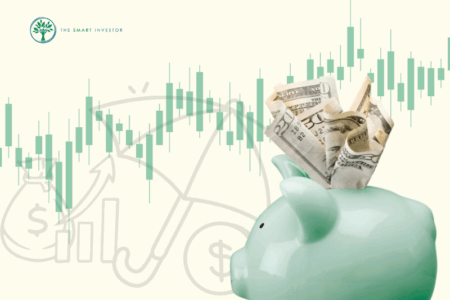With all that is going on in the political arena, it is easy to overlook the many stock markets around the world that have been on a bit of a tear. While many of us have been busy digesting key elections in India, the UK and France, investors have been piling into shares.
It would seem that Narendra Modi’s failure to win a super majority in India, the Labour Party’s taking the helm in the UK after 14 years in the political wilderness, and France’s narrowly avoiding an ultra-right government haven’t mattered a jot.
And let’s not forget the upcoming US presidential election that has turned into a bit of a farce. That doesn’t seem to have dented investor sentiment, either.
It is true that elections don’t have much impact on stock markets. They might have some effect at the fringes. But most businesses are quite adept at navigating governments of any hue. They are more than capable of pivoting their strategies to deal with any changes in policies, in leadership, and even changes in the political leanings of a country.
Reaching for the skies
But what should investors do, now that the election journeys in many parts of the world are over? It is often said that it is better to travel than to arrive. Could that be the reason for stock markets continuing to reach for the skies? Perhaps. But a more likely reason could be that many economies around the world have been able to defy predictions of recession, and even managed to grow.
That could help explain why the Dow Jones Industrial Average, Nasdaq and the S&P 500 are hovering around all-time highs. In the UK, the FTSE100 may be off its all-time high, but it is still above the 8,000 level. In India, the Sensex topped 80,000 points for the first time in July. The rally in Indian shares seems almost unstoppable.
Malaysian shares have soared to around three-year highs, and the Straits Times Index (STI) is at its highest in six years. Meanwhile, the Nikkei has hit another new high. How much further could they go? If we have been invested in equities over the last few years, we could be sitting on some sizeable gains. But could this be as good as it gets?
Just a number
The point is, whether we are talking about the Dow at 40,000, the Sensex at 80,000, the FTSE100 at 8,000 or the Nikkei at 42,000, is irrelevant. They are just numbers. Those numbers might be, as some claim, psychologically important. But they are just numbers all the same. What matters is not whether, say, the STI is at 3,399 or 4,001. Instead, it is whether the market is offering good value for money.
On balance, the markets do. In the US, we are paying around US$26 for every dollar that American companies make in profit. We are paying twice as much for technology shares. But that is only to be expected. In the UK, the price-to-earnings (PE) ratio is 14; in Japan it is 26. In Singapore, the PE ratio is 12, and in Malaysia,15.
Those earnings yields of between 4 and 8 per cent look quite compelling when compared to a risk-free rate of 4.3 per cent, which could head lower. They aren’t screamingly cheap, but they are attractive, nonetheless.
But here’s the thing, equities are not risk-free. Consequently, share prices can go down as well as up. For long-term investors, any pullback in the stock market could be a buying opportunity. After all, share prices could be higher in five, 10 or 15 years from now.
Think long term
That is the way that I think about my ultra long-term portfolios. I am investing for the very long term. Additionally, if the portfolio is designed to generate rising income, then it would be a shame to miss out on years, if not decades, of growing dividends.
But for investors who don’t have the luxury of time, then it is important to think about the impact that a stock market decline could have on our financial position. Some might describe it as a tolerance to risk. But it is more important than that.
It is about whether we have sufficient time to recover from a stock market fall. The rebound could be instantaneous, or it could take months or even years. The question is whether we can stomach the wait.
If we can’t, then it could mean that the portfolio is unbalanced. We should be the master of our portfolios, not a slave to it. We have the power to shape our portfolios to our individual needs. If we are worried whether our investments can tolerate a correction, then it probably means that they can’t.
Note: An earlier version of this article appeared in The Business Times.
Our beginner’s guide to investing is finally here! Many investors took years to understand the principles inside, but you can have it all in one afternoon. If you have just started investing, download our free guide today so you can catch up quickly. Click here to download now.
Follow us on Facebook and Telegram for the latest investing news and analyses!
Disclosure: David Kuo does not own shares in any of the companies mentioned.





